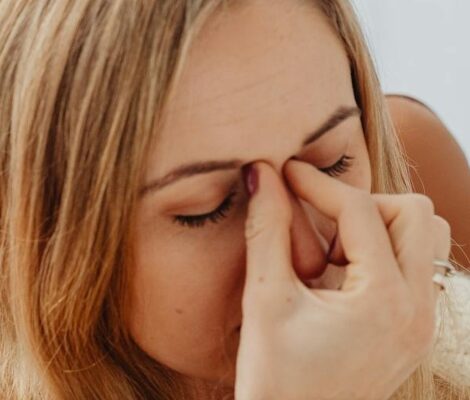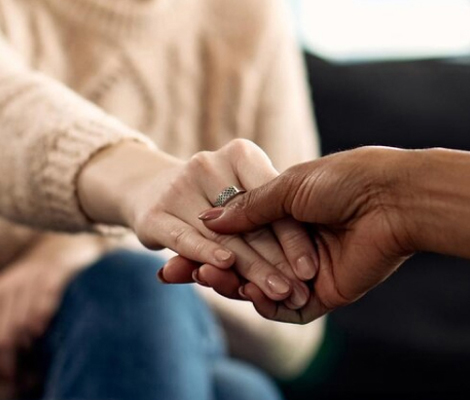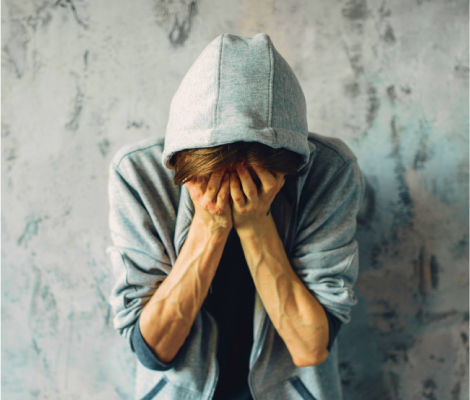When you are struggling with bipolar disorder, chances are you will also face challenges with drinking alcohol. Bipolar disorder and alcohol abuse are a common combination due to several reasons. When you have bipolar disorder, you might start using alcohol as a quick fix to numb the pain or to just feel more “normal”. However, drinking alcohol will just make things worse. It will create a condition that needs special care and help from professionals. We at We Level Up Treatment Centers will explore the connection between bipolar disorder and alcohol and how we can help you recover.
Skip To:

What is bipolar disorder?
Bipolar disorder is a serious mental health condition. Energy, attitude, and activity levels all change as a result of it. Being bipolar will make it difficult for you to do your daily duties. Multiple bipolar disorder subtypes exist. Each one has different characteristics and patterns of symptoms, which are addressed in psychiatric disorder treatment. They are:
- Bipolar I disorder: It is known for mood swings that are intense. They range from mania to depression. You have excessive energy and impulsive behavior during manic episodes and it can seriously impact your life.
- Bipolar II disorder: It involves something we call hypomania. It is similar to mania, but milder. Therefore, it doesn’t cause as much disruption.
- Not otherwise specified (NOS)/other specified and unspecified: This is a group with symptoms that can be put into bipolar spectrum disorders.
- Cyclothymia: This condition carries symptoms that are neither hypomanic nor depressive episodes. Also, you have periods of hypomania and mild depression, which last at least two years. However, it varies according to age. It is one year for children and adolescents.

An “am I bipolar test” or screening can be a useful tool if you’re concerned about your mental health and believe you may have bipolar. These tests are intended to identify potential indicators of bipolar disorder. But be careful as they’re not a diagnosis. Only a medical professional with the necessary training is qualified to diagnose bipolar disorder. If your test results suggest that you could have bipolar disorder, you should consider seeing a specialist for a thorough assessment.
About alcohol use disorder
When drinking alcohol starts causing problems in your life, this might mean you have an alcohol use disorder. It is a serious condition. Do not confuse it with drinking too much every now and then. When you have it, it is hard to stop or control drinking. AUD can cause problems and impact your everyday life, which is why it is important to seek help at top alcohol rehab centers. You might have an alcohol use disorder if you:
- End up drinking more or longer than you planned to.
- Have tried to cut back or stop more than once, but it just doesn’t happen.
- Spend a lot of your time drinking or feeling sick after drinking too much.
- Get strong urges to drink that you can’t ignore.
- Have hangovers that often interfere with your responsibilities at work, home, or school.
- Keep drinking even though it’s causing trouble with your family or friends.
- Have stopped doing activities you used to enjoy because of alcohol.
- Find yourself in dangerous situations (like driving, swimming, or unsafe sex) after drinking.
- Have to drink more than you used to to get the effect you want, or you find that the same amount of alcohol doesn’t give you a buzz anymore.
On the other hand, when you don’t drink, you have problems with sleeping, you’re shaking, and feeling restless. Also, without alcohol, you might feel nauseous, sweat, or even have a seizure.
If you notice any of these signs of alcohol use disorder, contact our detox professionals – as one of the top alcohol detox centers we’ll be there to give a helping hand.

The interconnection between bipolar disorder and alcohol
What links exist between alcohol use disorder and bipolar disorder? First, there’s a genetic side to the interconnection between bipolar disorder and addiction. Dealing with AUD may also be more likely if bipolar disorder runs in your family. Similar to how some traits are inherited from family members, there is a chance but no assurance.
An important factor in bipolar disorder is alcohol. While it can seem like drinking will help you feel better or more in control, in actuality, it might make matters worse. Drinking alcohol may exacerbate mood swings, disrupt your sleep, and reduce the efficacy of your BD prescription. This implies that although drinking alcohol can seem beneficial at first, it probably has the opposite effect.
Get Help. Get Better. Get Your Life Back.
Searching for Accredited Drug and Alcohol Rehab Centers Near You?
Even if you have failed previously and relapsed, or are in the middle of a difficult crisis, we stand ready to support you. Our trusted behavioral health specialists will not give up on you. When you feel ready or just want someone to speak to about therapy alternatives to change your life call us. Even if we cannot assist you, we will lead you to wherever you can get support. There is no obligation. Call our hotline today.
(844) 597-1011Self-medication is a widely accepted idea. In an effort to feel a little bit better when managing the symptoms of bipolar disorder, you could resort to alcohol. However, this can quickly become a never-ending cycle of drinking alcohol and experiencing bipolar disorder consequences. Although it seems to offer a momentary fix, alcohol is only temporary. It could eventually cause extreme mood swings.
Consequences of co-occurring bipolar disorder and AUD
Having both alcohol use and bipolar disorder frequently results in worsening symptoms and a reduced quality of life. This is about how two sets of obstacles interact and exacerbate one another, not just about overcoming them separately. The consequences of bipolar disorder and alcoholism are:
- Increased severity of symptoms
- Decreased quality of life
- Challenges in diagnosis and treatment

Increased severity of symptoms
You may have more severe mood swings if you deal with alcohol abuse and bipolar disorder. Alcohol has the ability to make bipolar symptoms worse by raising highs and decreasing lows. It’s a difficult cycle because, while you may feel unstoppable and drink more during manic episodes, you may also drink to dull the agony during depression episodes. Both moves just serve to widen the hole.
Decreased quality of life
Day-to-day living can be more difficult when these factors are present. It could be difficult for you to stay in relationships, keep up in job or school, or even just to enjoy the things you used to like. Struggling to maintain equilibrium when everything seems out of control is like fighting a never-ending struggle with yourself.

Get Your Life Back
Find Hope & Recovery. Get Safe Comfortable Detox, Addiction Rehab & Dual Diagnosis High-Quality Care.
Hotline(844) 597-1011Challenges in diagnosis and treatment
It can be difficult to diagnose and treat someone who has both bipolar and alcohol use disorder. It can be challenging to gain a clear picture of what’s going on when bipolar disorder symptoms are concealed or mimicked by alcohol withdrawal or use symptoms. Delays in receiving the proper diagnosis and initiating efficient therapy are frequently caused by this intricacy.
Treatment approaches for co-occurring bipolar disorder and AUD
When you’re dealing with both bipolar disorder and alcohol addiction, finding the right treatment can feel overwhelming. But there’s good news. Integrated treatment, which tackles both issues together, can make a big difference. At We Level Up dual diagnosis treatment centers, we specialize in this type of care, making sure you don’t have to fight this battle alone.
When treating one dual illness, such as alcohol and bipolar disorder, the other may go untreated, leading to a vicious cycle of problems. This is why integrated treatment is so important. Consider it as handling the entire picture rather than just a portion of it. This method can lessen symptoms, enhance quality of life, and increase the likelihood of a sustained recovery.
How we approach treatment
At some point in their lives, around 4.4% of adults in the United States may encounter bipolar disorder, according to the National Institute of Mental Health. As the struggles of this condition turn to alcohol as a way to cope, there are many people who develop bipolar disorder and alcoholism. Here is how we approach the treatment of bipolar disorder and alcohol use disorder:
- Medication management
- Psychotherapy
- Inpatient or outpatient programs

Psychotherapy
Speaking with a therapist can be quite beneficial, particularly when using Motivational Interviewing (MI) and Cognitive Behavioral Therapy (CBT). CBT is similar to mental detective work. It aids in identifying the deceptive methods your mind uses to persuade you to consume alcohol or the reasons behind your extreme mood swings. It then provides you with the means to alter those patterns. Imagine learning how to deal with grief without drinking after recognizing that drinking when you’re depressed simply makes you feel worse.
Motivational Interviewing, on the other hand, functions as a change agent. It all comes down to what motivates you to limit your alcohol use or continue taking your bipolar medication. MI assists you in identifying your own motives, as opposed to telling you what to do. Perhaps you’d like to find a career you love or get healthier for your children. MI can help you realize how making small changes to your behaviors can help you achieve these objectives.

Inpatient and outpatient programs
You can choose to receive therapy while living at home or to remain at a rehab facility, depending on what you require at the time. If you need time away from everything to focus on your recovery, an inpatient program is comparable to a retreat. With professionals by your side around-the-clock, you may safely detox and begin healing without interruptions.
In outpatient programs, you can get the assistance you require while still going to work and seeing your loved ones. It’s ideal if you are prepared to approach recovery with some wiggle room and have a robust support network at home.
Detox is the first and most important step. Consider it as pressing the button for reset. Doctors at a detox clinic ensure that you’re secure and comfortable while also making sure you’re physically prepared to take on your recovery. Once you have the resources and assistance you need to overcome both AUD and bipolar disorder, you can proceed with therapy and other therapies in an inpatient or outpatient environment.
First-class Facilities & Amenities
World-class High-Quality Addiction & Mental Health Rehabilitation Treatment
Rehab Centers TourRenowned Addiction Centers. Serene Private Facilities. Inpatient rehab programs vary.
Addiction Helpline(844) 597-1011Proven recovery success experience, backed by a Team w/ History of:
15+
Years of Unified Experience
100s
5-Star Reviews Across Our Centers
10K
Recovery Success Stories Across Our Network
- Low Patient to Therapist Ratio
- Onsite Medical Detox Center
- Comprehensive Dual-Diagnosis Treatment
- Complimentary Family & Alumni Programs
- Coaching, Recovery & Personal Development Events
Personal and societal implications
The overall impact of co-occurring alcohol use and bipolar disorder recovery is felt by society. In this process, the assistance of friends, family, and medical professionals is crucial. It’s critical that you understand that seeking help from reputable alcohol rehabilitation facilities can improve your life.
Your backbone is your support network. Friends and family offer love, compassion, and emotional support—elements that are essential for healing. Healthcare professionals provide expert guidance and make sure that the treatment strategy is efficient and customized to meet your needs. Together, we establish a safety net that lessens the intimidating nature of the rehabilitation process.
Holistic approach to wellness and recovery
Healing means building a foundation for a happy, fulfilled life. It doesn’t merely mean treating symptoms. Encouraging a holistic approach means taking into account, in addition to medical care, factors like spiritual development, social interactions, emotional stability, and physical health. These components are included in comprehensive treatment plans for mental illnesses and can support you in leading a balanced and healthy lifestyle.

Seek help and take control of your life
Bipolar disorder and alcohol abuse frequently coexist, which can make your life particularly difficult. It’s not simply about mood swings or overindulging in alcohol; it’s about how these two things worsen one another. We Level Up Treatment Centers address both at the same time because of this. We cannot only concentrate on one problem while ignoring the other. We provide methods that manage both bipolar disorder and alcoholism together. In this manner, you’re working toward a true, long-term solution.
Experience Transformative Recovery at We Level Up Treatment Centers.
See our authentic success stories. Get inspired. Get the help you deserve.
Start a New Life
Begin with a free call to an addiction & behavioral health treatment advisor. Learn more about our dual-diagnosis programs. The We Level Up Treatment Center Network delivers recovery programs that vary by each treatment facility. Call to learn more.
- Personalized Care
- Caring Accountable Staff
- World-class Amenities
- Licensed & Accredited
- Renowned w/ 100s 5-Star Reviews
We’ll Call You
Sources:
https://www.nimh.nih.gov/health/statistics/bipolar-disorder








